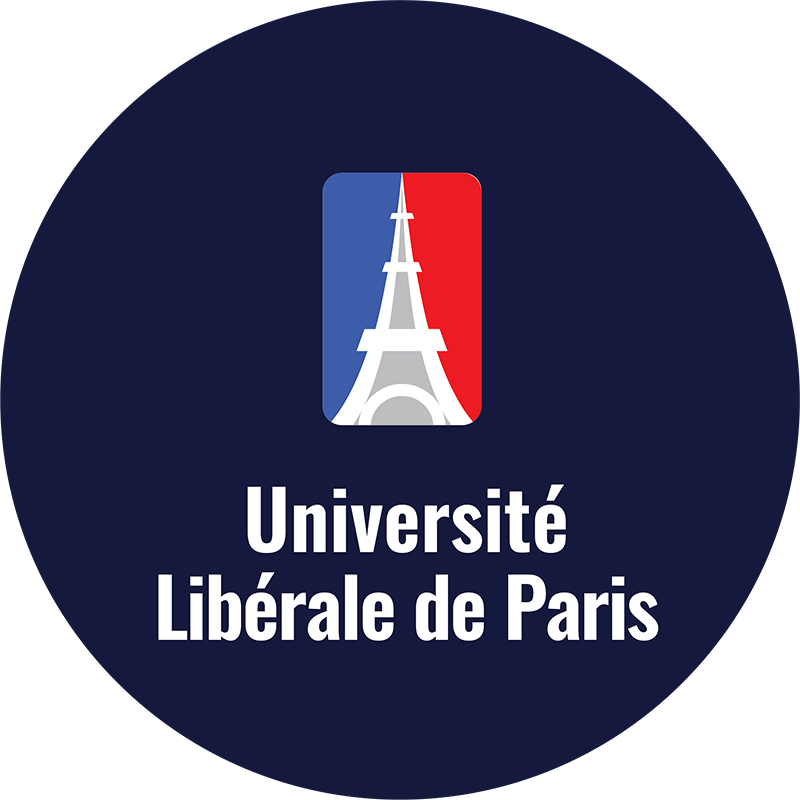
Micro Doctor’s Degree in Developing Strategic Management and Leadership Potential
Micro Doctor's Degree in Developing Strategic Management and Leadership Potential
CÔNG NHẬN NĂNG LỰC LEVEL 8 THEO KHUNG NĂNG LỰC CHÂU ÂU EQF
Chương trình học nhằm giúp người học phát triển hiểu biết về quản lý chiến lược trong một thế giới toàn cầu hóa và cách thức kỹ năng lãnh đạo sẽ thúc đẩy và ảnh hưởng đến sự thay đổi chiến lược. Nó cũng phát triển khả năng đánh giá các vị trí, các lựa chọn và các hành động chiến lược.
Level 8 EQF tương đương với cấp độ Tiến sĩ và có thể chuyển 20 tín chỉ và toàn bộ học phí sang các chương trình Tiến sĩ của Paris-U.
Chương trình chi tiết
Learning Outcomes:
1. Be able to analyse key external influences on an organisation’s strategy.
1.1 Critically evaluate the external business environment of an organisation.
1.2 Identify key drivers and industry critical success factors.
2. Be able to evaluate the dynamic capabilities and core competences of an organisation.
2.1 Critically analyse the resources and capabilities of an organisation.
2.2 Distinguish between their threshold and distinctive resources and capabilities.
2.3 Evaluate their value chain and identify their core competence as a source of sustainable competitive advantage.
3. Be able to appraise strategic options and to evaluate approaches to strategy implementation.
3.1 Critically explore the relationship between, corporate, business and operational strategies.
3.2 Apply strategic models and tools to develop strategic options for an organisation.
3.3 Evaluate strategic options for an organisation.
4. Be able to evaluate international strategy and how it relates to corporate social responsibility (CSR).
4.1 Critically evaluate internationalisation drivers and strategies.
4.2 Critically analyse corporate social responsibility strategies emphasizing the stakeholder theory.
4.3 Demonstrate the nexus between strategy and corporate social responsibility/sustainability and evaluate the concept of shared value.
5. Be able to analyse how leadership impacts upon strategic decision making.
5.1 Identify and assess different leadership styles as related to strategy change.
5.2 Evaluate how organisational context affects strategic change.
5.3 Evaluate how leadership influences strategic change.
Using a variety of tools to critically analyse external business environment
- PESTEL and five forces analysis; threats and opportunities analysis, etc.
Using a variety of tools to critically analyse internal business environment
- Resources and capability/competency analysis, Value chain analysis, VRIO analysis and the determination of core competencies and sources of sustainable competitive advantage.
Identify and analyse mandatory competency and competitive advances of an organisation
- Competitive advantage identification; economies of scope and scale; product or service life measurement; internal statistics and surveys; measures for monitoring and evaluating; emergent and unrealised strategy; globalisation effects; resources analysis; mandatory skills and competences; experience curves; comparative analysis.
To review the position of an organisation in its current market:
- Market situation analysis; organisational position measurement; strategic business planning tools; e.g. SWOT (strength, weakness, opportunity and threats) analysis; Porter’s Five Forces Analysis; value chain analysis; Boston growth-share (BCG) matrix; market equilibrium; market share; sustainable competitive advantage.
Discussing relationship between, corporate, business and operational strategies
- Strategic relationships e.g. concepts, application and changing trends; corporate strategies; business strategies; operational strategies
- Effective communication; strategy formulation; strategic drift; strategic options review; benchmarking; competitor analysis; benefit-cost analysis; information review; organisational value consistency; position in markets; market share; globalisation effect; impacts of technological advancements.
Use various models and tools to develop strategic options for an organisation strategic models,
- Identification, uses and effectiveness; Mintzberg’s strategies e.g. emergent and deliberate; Ansoff matrix strategies; balanced mandatory card analysis; sensitivity analysis; organisational integration; merger and acquisition; gap analysis; product portfolio. SAFe
Assess internationalisation drivers and potential for different markets
- Yip’s globalisation framework, Porter’s Diamond, CAGE framework, global strategy, global integration vs local responsiveness, entry modes, etc.
Introduce the concept of ‘Business and Society’
- Analyse and decide strategic and business strategic options: Business ethics and corporate social responsibility (CSR), stakeholder analysis, triple bottom line, creating shared value etc.
Leadership Styles and Strategic Change
- Analysing change context, types of change, levers of strategic change and the challenges of implementing strategic change.
Indicative Reading list
Core texts:
- Whittington, R., Regner, P., Angwin, D., Johnson, G., & Scholes, K. (2020) Exploring Strategy: Texts and Cases. (12th ed.)
- Harlow, Pearson. Gill R (2011). Theory and Practice of Leadership, 2nd ed. Sage Publications
Additional reading:
- Balogun J and Hope-Hailey V (2008). Exploring Strategic Change, 3rd ed. FT Prentice Hall
- Crane, A., Matten, D., Glozer, S., & Spence, L. (2019). Business Ethics: Managing Corporate Citizenship and Sustainability in the Age of Globalization (5 ed.). Oxford: Oxford University Publishing.
- De Wit B and Meyer, R (2010). Strategy: Process, Content, Context: an international perspective, 4th ed. Andover : South-Western Cengage Learning
- Mintzberg H, Lampel J and Ahlstrand B (2009). Strategy Safari: the complete guide through the wilds of strategic management, 2nd ed. FT Prentice Hall
- Barney, J. (2010) Gaining and Sustaining Competitive Advantage. New York: Pearson Education.
- Grant, R. (2010) Contemporary Strategy Analysis. Hampshire: John Wiley and Sons.
- Hill, C., Jones, G. and Schilling, M. (2013) Strategic Management: Theory: An Integrated Approach. Stamford, CT: Cengage Learning.
- Chandler, D. (2016) Strategic Corporate Social Responsibility: Sustainable Value Creation. London, Sage.
- Mintzberg, H. (2000) The Rise and Fall of Strategic Planning. Harlow: Financial Times/Prentice Hall.
- Pettigrew, A. M., Thomas, H. and Whittington, R. (eds.) (2006) The Handbook of Strategy and Management. London: Sage.
- Stacey, R. D. (2010) Strategic Management and Organisational Dynamics. Harlow: Financial Times/Prentice Hall.
Recommended Journal Articles
- Carroll, A & Shabana, K (2010) The Business Case for Corporate Social Responsibility: A Review of Concepts, Research and Practice, International Journal of Management Reviews, 12(1), 85-105
- Porter, M.E. & Kramer, M.R. (2011) Creating shared value: How to reinvent capitalism and unleash a wave of innovation and growth. Harvard Business Review 89(1–2), 62–77.
- Porter, M. (1996) What is Strategy? Harvard Business Review. Nov-Dec pp. 61–78.
- Rugman, A. & Verbeke, A. (2004) A perspective on regional and global strategies of multinational enterprises. Journal of International Business Studies 35(1), 3–18
- Cohen, B. & Munoz, P. (2017) Entering conscious consumer markets: Toward a new generation of sustainability strategies. California Management Review 59(4), 23–48.
- Fassin, Y. (2008) The stakeholder model refined. Journal of Business Ethics 84(1), 113–135.
- Ghemawat, P. (2001) Distance still matters: The hard reality of global expansion. Harvard Business Review 79(8), 137–47.
- Goold, M. & Alexander, M. (1998) Corporate strategy and parenting theory. Long Range Planning 31(2), 308–314.
- Porter, M.E. (1990) The competitive advantage of nations. Harvard Business Review 68(2), 73–93.
- Porter, M.E. & Kramer, M.R. (2006) Strategy and society: The link between competitive advantage and corporate social responsibility. Harvard Business Review 84(12), 78–92.
Journals/newspapers:
- Strategic Management Journal
- Academy of Management Journal
- Journal of International Business Studies
- Journal of World Business
- British Journal of Management;
- California Management Review;
- European Management Journal;
- Harvard Business Review;
- Journal of Business Strategy;
- Journal of Management Studies;
- Long Range Planning;
- MIT Sloan Management Review;
Websites:
- www.sps.org.uk Strategic Planning Society
- www.ft.com Financial Times
- www.managers.org.uk Chartered Management Institute
Tiêu chuẩn đầu vào
Để đăng kí tham gia chương trình học học, học viên cần đạt 1 trong những điều kiện sau:
- Đã có bằng Thạc sĩ các chuyên ngành từ các đại học được kiểm định hoặc bằng cấp Level 7 theo hệ thống EQF hoặc tương đương.
- Với ứng viên có bằng đại học nội địa chưa có kiểm định quốc tế sẽ phải dựa vào chính sách chương trình APEL.Q của Université Libérale de Paris (Paris-U) để tuyển sinh.
- Trên 24 tuổi
Lưu ý: Université Libérale de Paris (Paris-U) bảo lưu quyền quyết định tiếp nhận hay không tiếp nhận sau khi bộ phận tuyển sinh đã xem xét kỹ lưỡng hồ sơ của từng ứng viên để đảm bảo ứng viên có thể đạt được nhiều lợi ích và kiến thức khi tham gia chương trình. Paris-U không chấp nhận bằng cấp đầu vào từ các trường đại học giả mạo và các trường đại học thuộc nhóm Diploma Mills.
Yêu cầu tiếng Anh
Ứng viên không đến từ những quốc gia sử dụng tiếng Anh là ngôn ngữ chính phải cung cấp chứng chỉ về trình độ tiếng Anh.
- Tiếng Anh đạt tối thiểu khung năng lực CEFR (Common European Framework of Reference) ở mức B2 hoặc tương đương.
- TOEFL tối thiểu 101 điểm hoặc IELTS 6.5; Nói và viết phải đạt từ 6.5 hoặc tương đương.
Sau khi tốt nghiệp, học viên nhận được:
- Bằng Micro Doctor’s Degree in Developing Strategic Management and Leadership Potential từ Université Libérale de Paris bản điện tử.
- Bằng Micro Doctor’s Degree in Developing Strategic Management and Leadership Potential từ Université Libérale de Paris bản cứng chuyển về nhà.
- Giấy công nhận Accreditation of Prior Experimental Learning for Qualification (APELQ) từ Paris-U với số tín chỉ và học phí có thể tích luỹ.
- Xác nhận chuyên gia Level 8 Certified in Developing Strategic Management and Leadership Potential từ Paris-U
Vì chương trình được kiểm định và công nhận nên học viên có thể dễ dàng sử dụng chứng chỉ trong các môi trường làm việc và có nhiều cơ hội thăng tiến trong sự nghiệp. Trong trường hợp muốn học lấy bằng đại học, học viên có thể chuyển đổi toàn bộ tín chỉ và toàn bộ học phí khi tham gia chương trình tại Paris-U.
Micro Doctor’s Degree đặt cấp độ Level 8 của Khung Năng lực Châu Âu EQF và tương đương với:
- Level 8 certificate of Regulated Qualification Framework (RQF) of UK
- Level 11 certificate of Scottish Credit and Qualifications Framework (SCQF)
- Level 8 certificate of Credit and Qualifications Framework (CQFW)
- Level 8 certificate of European Qualifications Framework (EQF)
- Level 10 certificates of the Australian Qualifications Framework (AQF)
- Level 8 certificate of ASEAN Qualifications Reference Framework (AQRF)
- Level 10 certificate of the African Continental Qualifications Framework (ACQF)
Học viên có thể chuyển tất cả tín chỉ và toàn bộ học phí đã đóng khi chuyển tiếp sang các chương trình của Paris-U nếu muốn lấy bằng đại học chính thức.
Số tín chỉ có thể tích luỹ:
Học viên được tích luỹ được 20 credits khi tham gia chương trình Doctor of Business Administration (DBA) Vui lòng tham khảo thêm về chính sách tích luỹ tín chỉ TẠI ĐÂY.
Chuyển học phí đã đóng:
Khi tham gia chương trình DBA, toàn bộ phí đã đóng cho chương trình Micro Degree sẽ được giảm tương ứng. Thông tin chi tiết vui lòng xem TẠI ĐÂY.
APEL.Q – Accreditation of Prior Experiential Learning for Qualifications là quy trình công nhận năng lực (APEL) để cấp bằng (Q- Qualification) thông qua việc thẩm định và đánh giá quá trình học tập (chính thức, không chính thức, đào tạo tại doanh nghiệp) và từ kinh nghiệm làm việc. APEL.Q được triển khai rộng rãi tại Châu Âu và gần đây, tại Châu Á, một số nước đã công nhận APEL.Q như quy trình chính thức, được công nhận cấp quốc gia và được ưu tiên phát triển như một chính sách hiệu quả phục vụ cho giáo dục khai phóng, dịch chuyển lao động và học tập suốt đời.
APEL.Q cho phép các cá nhân có chuyên môn nghiệp vụ, có kinh nghiệm làm việc nhưng không có bằng cấp (academic degree) có thể chuyển đổi kinh nghiệm để lấy bằng. APEL.Q được đánh giá là quy trình chặt chẽ, minh bạch, công bằng, chính xác và tiết kiệm.
Với các chương trình đào tạo truyền thống, việc cấp bằng sẽ dựa vào năng lực có được từ chương trình đào tạo. APEL.Q áp dụng quy trình ngược so với đào tạo truyền thống, dùng chính năng lực theo từng vị trí (position) và cấp độ (level) do chính phủ công bố để đánh giá, từ đó công nhận và cấp văn bằng. Văn bằng sẽ được cấp từ các tổ chức nghề nghiệp và/hoặc trường đại học nếu tổ chức nghề nghiệp và/hoặc trường đại học đó công nhận quy trình đánh giá.
APEL.Q của Viện hàn lâm khoa học London là chương trình triển khai độc lập đầu tiên trên thế giới với các tiêu chí đánh giá năng lực được công bố và công nhận của chính phủ Anh Quốc và Đại học Khai phóng Paris – Université Libérale de Paris (Paris-U). Xem thêm TẠI ĐÂY
- Chọn chương trình phù hợp theo nhu cầu của bạn. Để đảm bảo lợi ích và thuận lợi tối đa, hãy xem trước chương trình mà sau này có thể chuyển tín chỉ và học phí.
- Email nguyện Vọng học tập về địa chỉ support@paris-u.fr.
- Paris-U sẽ gửi bạn thông tin chi tiết chương trình, bạn tiến hành theo quy trình được hướng dẫn.
- Université Libérale de Paris xuất Letter of Acceptant (LOA). Bạn tiến hành các bước đăng ký theo hướng dẫn và đóng học phí.
- Université Libérale de Paris sẽ gửi đến bạn tài khoản đăng nhập vào hệ thống e-learning và các tài liệu hướng dẫn đi kèm.
- Bạn lúc này là sinh viên chính thức của Paris-U với chương trình Micro Degree.
Micro Degree là chương trình triển khai theo mô hình trực tuyến. Bạn có thể học mọi lúc mọi nơi. Bài kiểm tra cuối khoá được upload lên hệ thống làm căn cứ để quyết định tốt nghiệp. Trong trường hợp học viên không nộp bài đúng hạn sẽ xem như rớt môn và bị huỷ bỏ tư cách sinh viên và các quyền lợi đi kèm. Chương trình Micro-Degree không áp dụng chính sách Resit.
- Chương trình Micro-Degree bên cạnh do Paris-U triển khai trực tiếp, thì những chương trình không phải do Paris-U triển khai chỉ chấp nhận chuyển tín chỉ khi đã được Paris-U công nhận bằng văn bản.
- Để có thể chuyển được tín chỉ và học phí, học viên phải gửi toàn bộ tài liệu nhận được sau khi tốt nghiệp chương trình Micro Degree. Paris-U sẽ không tiếp nhận việc chuyển điểm và học phí nếu ứng viên không cung cấp đầy đủ.
- Học viên chỉ được chuyển đổi tín chỉ và chuyển học phí với chương trình tương ứng, bao gồm tương ứng về cấp độ (Level) và tương ứng về chuyên ngành.
- Chương trình chuyển đổi tín chỉ và học phí chỉ áp dụng trong thời hạn 2 năm kể từ ngày tốt nghiệp Micro-Degree. Sau thời gian này, Micro-Degree đã học sẽ không còn hiệu lực chuyển đổi tín chỉ và học phí.
- Việc chuyển đổi tín chỉ giúp giảm bớt số tín chỉ cần phải hoàn thành không đồng nghĩa với rút ngắn tổng thời gian của chương trình. Học viên tốt nghiệp cùng với những học viên thông thường khác.


Học phí
Học phí chương trình Micro Degree của Paris-U đã được trợ phí và có thể thay đổi mà không báo trước.
Université Libéral de Paris
Université Libéral de Paris (Paris-U) offers higher education programmes in English only and that are different from the French National Curricula and Programmes leading to French Government accredited university qualifications, which falls under the French Public Higher Education sector.
Université Libérale de Paris
1 rue de Stockholm 75008 Paris, France
Phone: +33758491227
Email: support@paris-u.fr
Một Đại học của the European Education Holdings
Wertachstrasse 21 • 86153 Augsburg
Phone: +15908605264 • Email: support@education.holdings
Về Paris-U
Programs
Thành viên Paris-U
Hệ thống Paris-U
Chính sách Paris-U
Chính sách và Điều khoản

